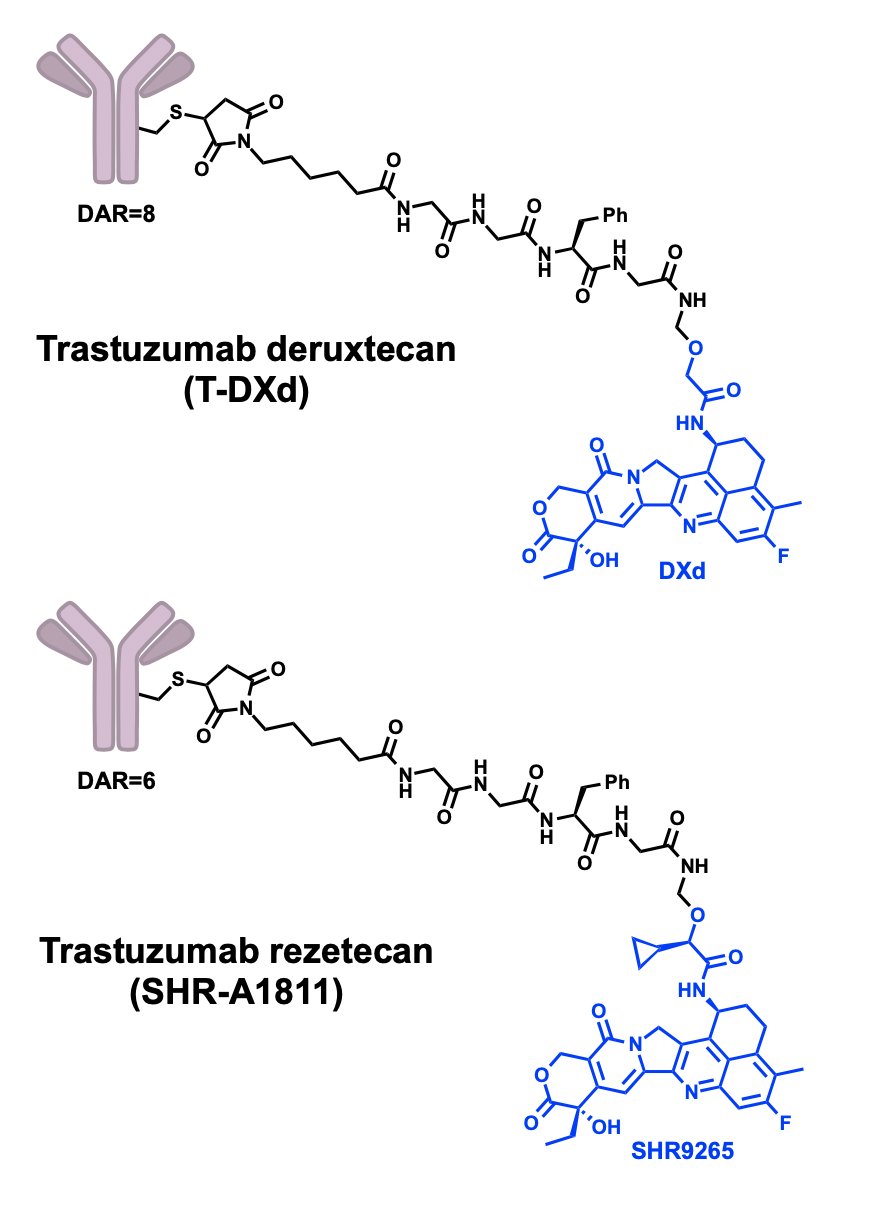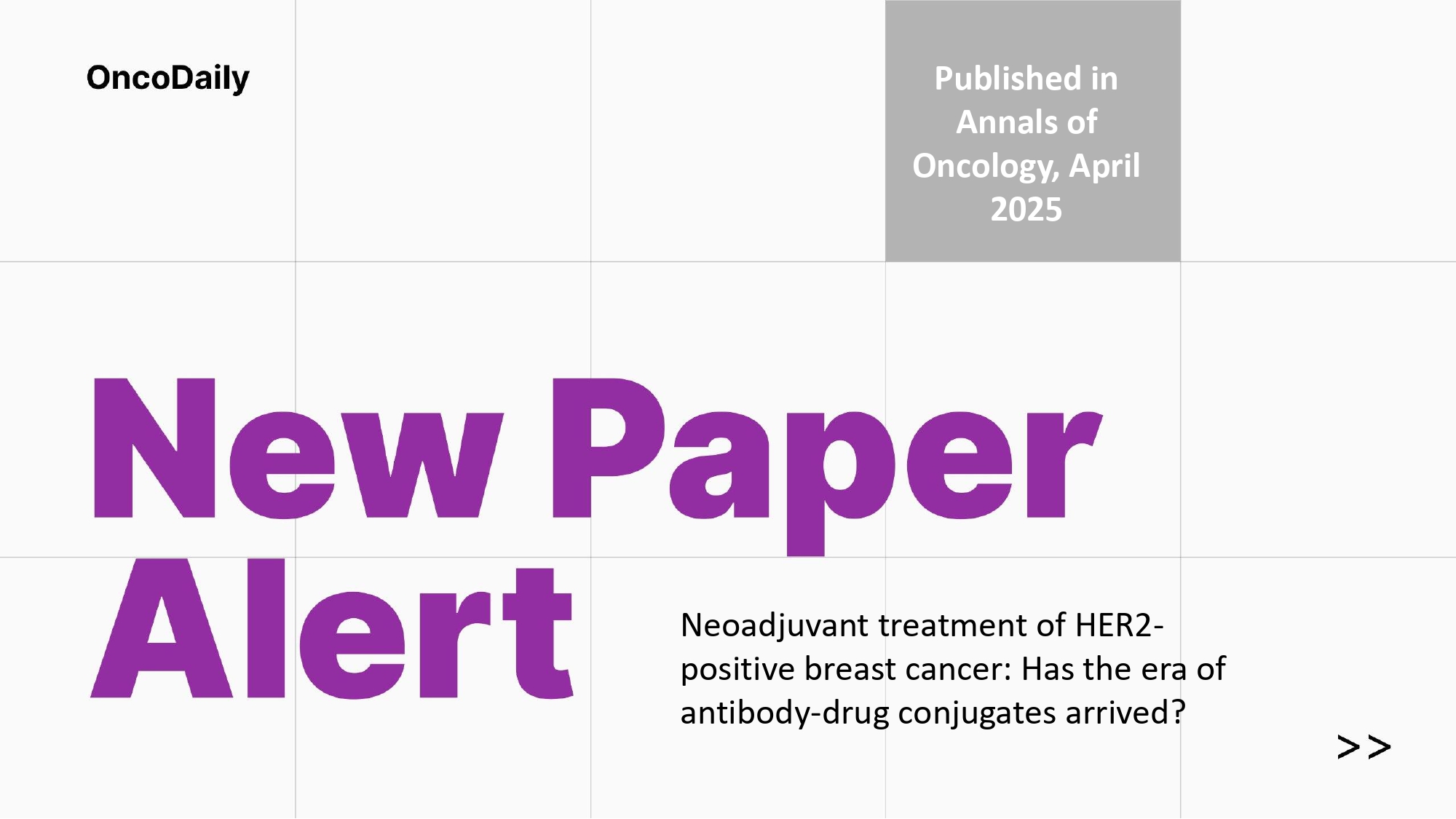Antibody-drug conjugates (ADCs) have redefined the treatment landscape of HER2-positive breast cancer, transforming this once-aggressive subtype into one of the most treatable forms of the disease. Breakthroughs with agents like trastuzumab emtansine (T-DM1) and trastuzumab deruxtecan (T-DXd) in the metastatic setting have sparked growing interest in bringing ADCs into earlier lines of therapy. However, attempts to incorporate ADCs into neoadjuvant and adjuvant treatment have shown mixed results, highlighting the urgent need for novel agents that are both highly effective and better tolerated. In this context, SHR-A1811—a next-generation trastuzumab-based ADC featuring a cleavable linker and a topoisomerase I inhibitor payload—has emerged as a promising investigational therapy. A newly published phase II trial in Annals of Oncology evaluates the efficacy and safety of SHR-A1811 in patients with early-stage HER2-positive breast cancer. This article delves into the study’s design, clinical outcomes, and potential implications for future treatment paradigms—underscoring the evolving role of ADCs and the need for biomarker-driven, personalized therapy in HER2-positive disease.
Title: Neoadjuvant treatment of HER2-positive breast cancer: Has the era of antibody-drug conjugates arrived?
Authors: A. Papakonstantinou, T. Foukakis
Published in Annals of Oncology, April 2025
Background
HER2-positive breast cancer has been a leading success story in targeted oncology, particularly with the development of antibody-drug conjugates (ADCs). These agents combine the specificity of monoclonal antibodies with the cytotoxic potency of chemotherapeutic payloads. Trastuzumab emtansine (T-DM1) and trastuzumab deruxtecan (T-DXd) are two such ADCs that have reshaped treatment paradigms, particularly in advanced disease. However, attempts to integrate ADCs into earlier treatment settings, such as the neoadjuvant or adjuvant phase, have met with mixed results. In this context, a novel HER2-targeted ADC, SHR-A1811, was evaluated in a phase II clinical trial for its potential as neoadjuvant therapy in HER2-positive early breast cancer.

Methods
SHR-A1811 is a trastuzumab-based ADC featuring a cleavable linker and a topoisomerase I inhibitor payload, structurally similar to T-DXd. Previous studies have demonstrated its acceptable safety profile and preliminary efficacy in HER2-mutant non-small cell lung cancer. Building on these findings, SHR-A1811 was evaluated for its therapeutic impact in HER2-positive breast cancer in the neoadjuvant setting.
Study Design
This randomized phase II trial, part of an umbrella trial with a Bayesian adaptive design, compared three treatment arms in patients with early-stage HER2-positive breast cancer:
SHR-A1811 monotherapy
- SHR-A1811 combined with pyrotinib, a second-generation tyrosine kinase inhibitor
- Standard neoadjuvant regimen of trastuzumab, pertuzumab, and chemotherapy (taxane/platinum)
A total of 265 patients were enrolled before the trial’s early closure due to the design protocol. The primary endpoint was pathological complete response (pCR), a surrogate for long-term outcomes in the neoadjuvant setting.
Results
The trial demonstrated that SHR-A1811 monotherapy for 24 weeks achieved a pCR rate of 63.2%, comparable to the 64.4% pCR rate observed with standard chemotherapy plus dual HER2 blockade. However, the combination of SHR-A1811 with pyrotinib resulted in increased toxicity without enhancing efficacy, suggesting limited clinical utility for this combination in this context.
While the study was not statistically powered to establish superiority or non-inferiority, the comparable efficacy and favorable tolerability profile of SHR-A1811 monotherapy is clinically noteworthy.
Key Findings
SHR-A1811 represents a promising new-generation ADC in the neoadjuvant treatment of HER2-positive breast cancer, offering comparable pCR rates to standard therapy and a favorable toxicity profile. Although longer-term data and larger confirmatory trials are needed, SHR-A1811 may pave the way toward chemotherapy-free neoadjuvant strategies in selected patients. As the field moves forward, biomarker-driven personalization of treatment will be key to optimizing the use of ADCs in early-stage breast cancer.
- SHR-A1811 monotherapy: pCR rate of 63.2%, comparable to standard treatment (64.4%)
- SHR-A1811 + pyrotinib: Increased toxicity with no added benefit
- ILD incidence: Only 1 case of interstitial lung disease (ILD) in the neoadjuvant SHR-A1811 trial, compared to 7% in metastatic NSCLC (HORIZON-Lung)
- Trial size: 265 patients, underpowered to show non-inferiority or superiority due to early closure
- Toxicity profile: Acceptable, and more favorable than that observed with other topoisomerase I ADCs like T-DXd
Key Takeaway Messages
SHR-A1811 demonstrated similar short-term efficacy to the current standard of care in HER2-positive breast cancer, offering a potential chemotherapy-free option with less toxicity.The addition of pyrotinib was not beneficial, reinforcing the need for precision in combination regimens.With a cleavable linker and topoisomerase I payload, SHR-A1811 joins the next generation of HER2-targeted ADCs with potential for bystander effect.Biomarker analysis suggests cytotoxic T-cell infiltration correlates with response, while heterogeneous HER2 expression may drive resistance.Longer-term outcomes, including event-free survival (EFS) and overall survival (OS), as well as post-surgical treatment strategies, remain to be clarified in future studies.
Comparative Context and Future Implications
The landscape of neoadjuvant ADCs is evolving. T-DM1, though approved as adjuvant therapy for residual disease post-neoadjuvant treatment (KATHERINE trial), failed to outperform standard chemotherapy in neoadjuvant settings in the KRISTINE trial, which showed lower pCR rates and worse EFS for T-DM1 plus pertuzumab.
Meanwhile, T-DXd, a structurally similar ADC to SHR-A1811, has shown superiority over T-DM1 in advanced settings and is currently being evaluated in early disease. The ongoing DESTINY-Breast11 and DESTINY-Breast05 trials will be instrumental in determining whether T-DXd (and by extension, SHR-A1811) can safely and effectively replace chemotherapy in the neoadjuvant and adjuvant settings.
Ongoing trials like ARIADNE (NCT05900206), which prospectively evaluates T-DXd in HER2-enriched tumors, aim to establish biomarker-driven selection for ADC-based therapy. In both the KRISTINE and PREDIX HER2 trials, patients with HER2-enriched molecular subtypes and high immune infiltration showed better outcomes, irrespective of treatment arm.
You can read the full article here
Written by Sona Karamyan, MD
